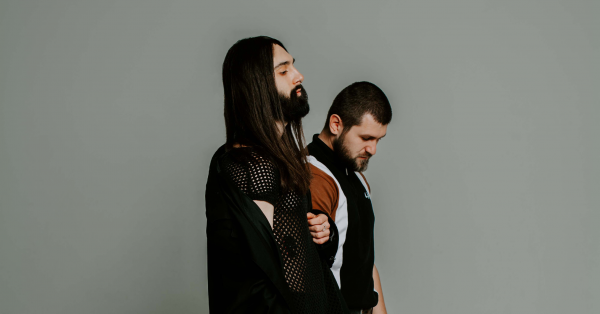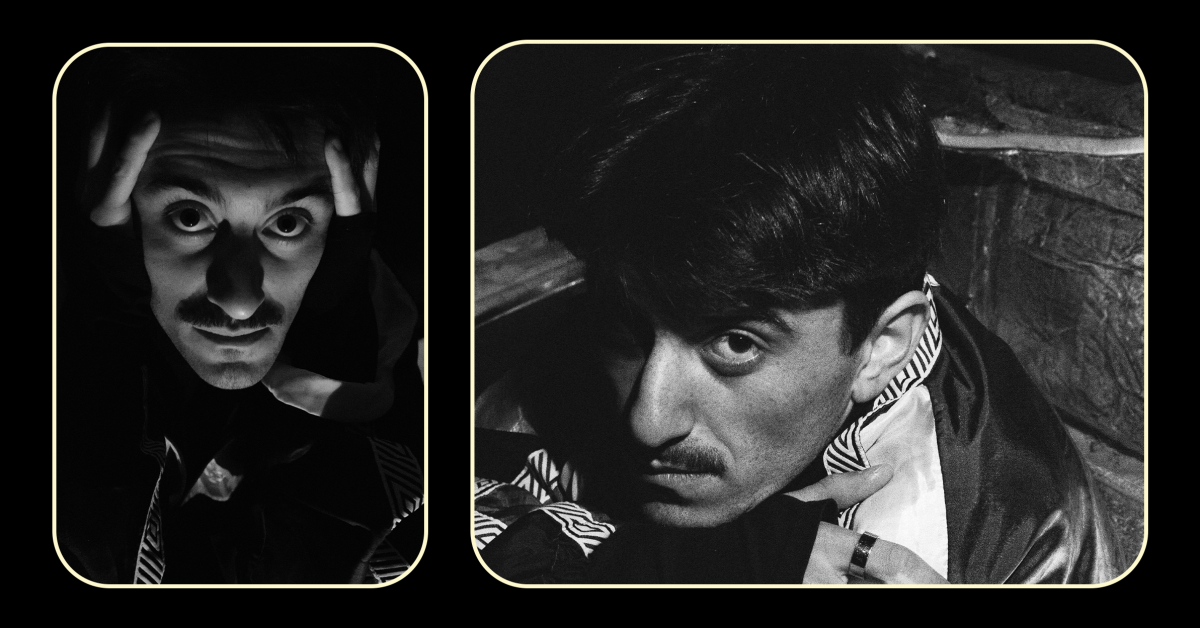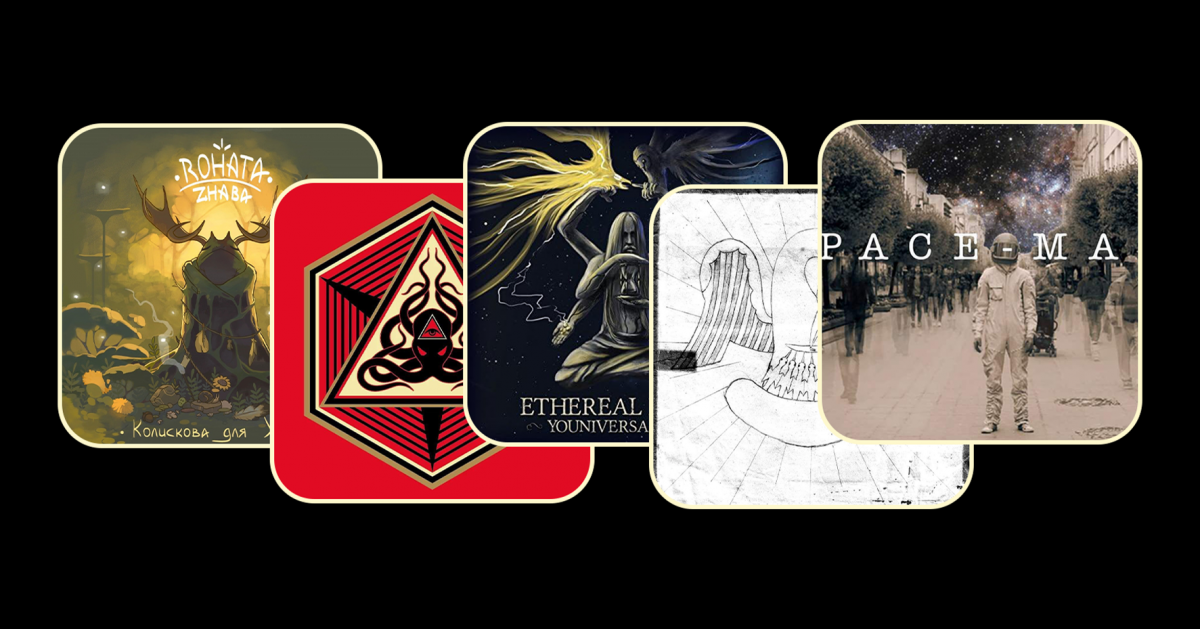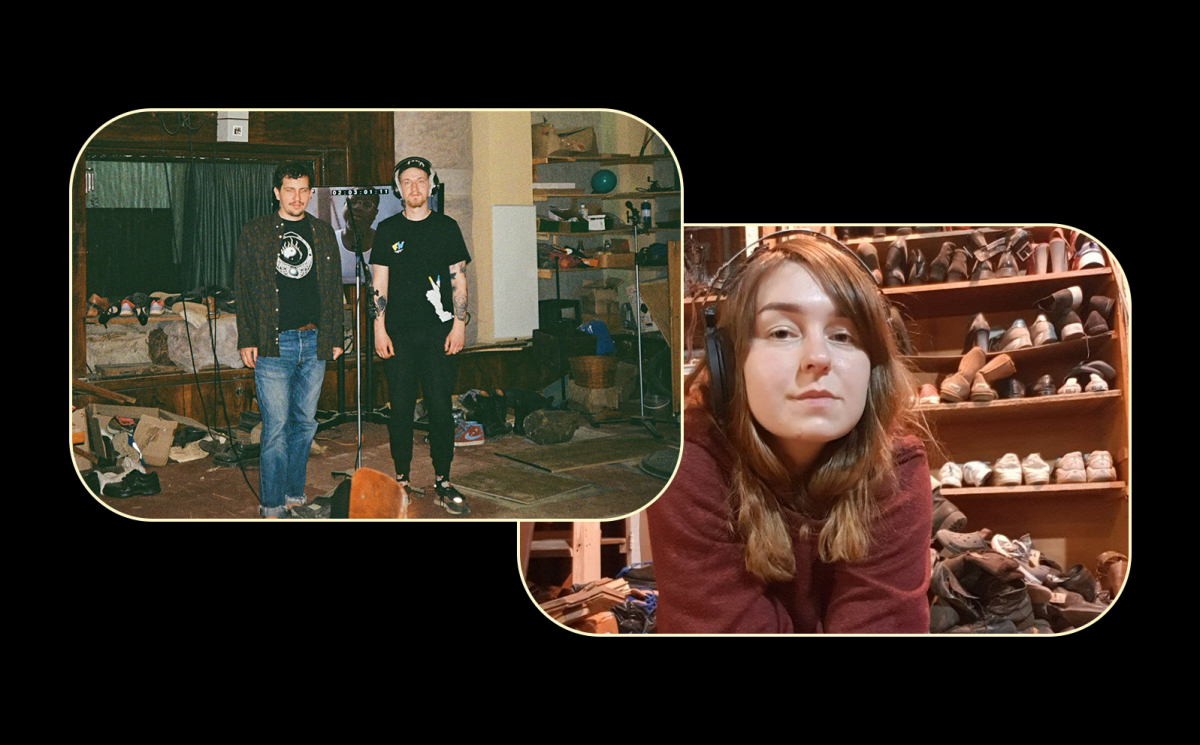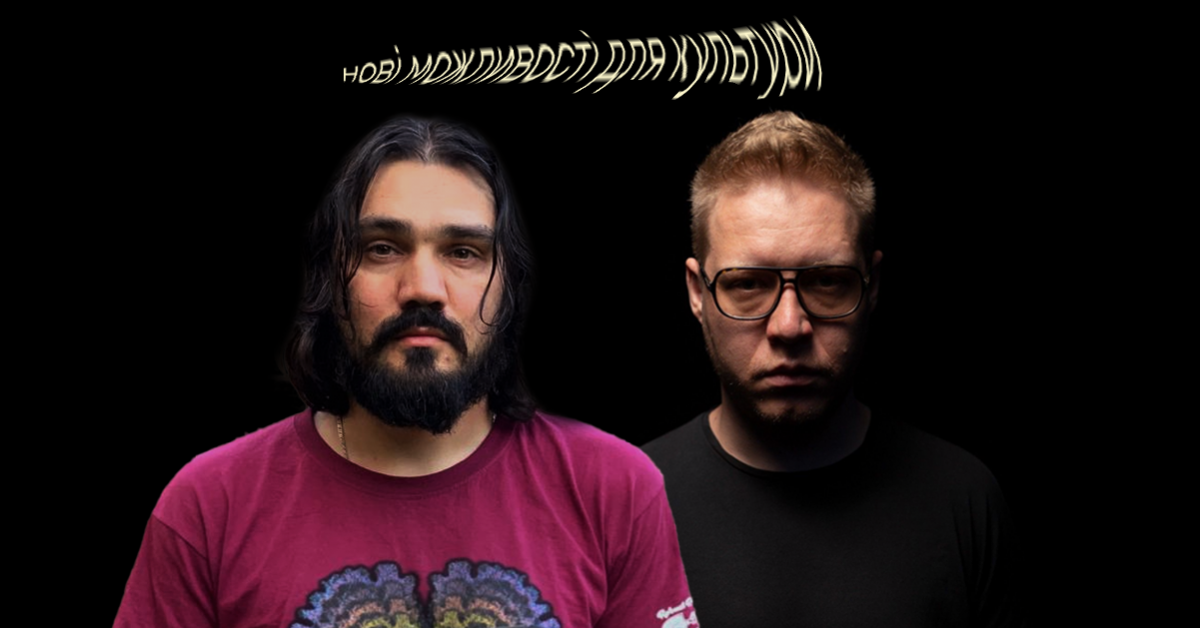Patreon and Music: What? Whom? Why? How?

In our circumstances anything implying culture and financial resources is a problem, especially now. However, we`ll try to touch upon the tools given to the creators by a platform with an oft- mentioned name – Patreon.
What is Patreon?
Patreon is a membership platform that provides tools for creators and other independent projects to run a subscription content service. Depending on the funds, subscribers (patrons) can get access to different art products, services or rewards, up to the creator's choice. That means, Patreon is a platform for crowdfunding (public funding). The platform is popular among YouTube bloggers, writers, musicians, webcomics artists, podcasts creators, etc., who regularly post their artwork online. It allows them to receive funding directly from their subscribers (patrons) on a regular basis or per work of art.
Patreon was created by Jack Conte, musician and multi-instrumentalist who was looking for a way to make a living by his YouTube videos. In 2013 he and Sam Yam developed the platform. Content creators set up a page on the Patreon website, to which patrons subscribe. Creators typically display a goal that the ongoing revenue goes towards and optionally set maximum limits of how much they can receive per month. Patrons, in turn, have their every opportunity to cancel subscription at any time. Creators may configure their page so that patrons pay for every new piece of art, but mostly prefer giving access to their exclusive content or behind-the-scenes work for fixed amount from each patron on a monthly basis.
Patreon is a great alternative to simply crowdfunding music albums, as platforms like Kickstarter and Indiegogo are often not available in Ukraine, or the band may be unsure whether they will be able to raise the necessary amount within a month. Patreon allows you to receive donations on a regular basis, change rules etc.
Is Patreon Good for Every Music Project?
American artist Peter Hollens believes that artists and creators who want to make a living by spreading their ideas online in particular, should use Patreon. Many Ukrainian performers, already using this service, support it. Others don’t consider this tool to be as good for everyone.
"Is Patreon good for every musician? I think it is! Especially since the platform was created for musicians from the very beginning. It`s difficult in our country, because people still haven`t get used to paying for music and do not consider it to be a serious job. But the real fans will follow you to the end of the Earth, and there are many of them! Musicians should try and bring their fans to this new level of relationship. Patreon is good for all creative people who want to monetize their art", says Dima Sinoptik.
Sasha Boole shares Dima`s opinion and calls Patreon an "absolutely universal platform where the creator is limited by his own imagination and creativity".
Helle Bogdanova, the lead singer of Kyiv metal band Ignea thinks that before setting up a page on Patreon, one should unbiasedly measure his or her own potential, because the platform is effort- and time consuming:
"I guess, key questions for every musician are why I need Patreon, what I am going to post, what is my goal and what I am aiming at posting these. Without answering these crucial questions, as well as without researching the tools provided by the platform, and the potential "rivals`" accounts monitoring, I strongly advise not to start Patreon just for mere sake of starting it. Otherwise you`ll be disappointed, it is a wasting of time you could`ve spent on something more useful for you as a musician".
Oleksiy Bondarenko, the chief editor of LiRoom, completely denies that Patreon is good for each and every project:
"I would strongly advise to think whether you really need a Patreon page. Being a big piece of extra work, it needs sustained effort for your patrons not to be disappointed (unless you really promise them something). You could as well receive donations through a bunch of systems like LiqPay or Portmone. Ukrainer does it perfectly without Patreon. This platform is good only for those projects which have the community and know what to offer their patrons, apart from the main content. Talking about artists, they should have a fan base interested in exclusive releases. Talking about media – readers, either grateful to the media for its existence, or interested in any additional content. If your target audience understands how it helps you to gain more profit, patrons will be more eager to donate than if you just give them a mere entertainment. Speaking in more detail, the platform is better for those willing to develop another way of distributing the content and wants to have a direct profit from fans/patrons".
As we can see, there are no strict criteria for starting Patreon, but there are some special aspects, considering which your Patreon will do best. First off, it is posting your content regularly. As well as its uniqueness. Lviv musician Stepan Burban (Palindrome (Паліндром), Kashlyayuchiy Ed (Кашляючий Ед)) agrees with that. He states that "they like goodies like interesting news and posts" because you need to feed the old subscribers` interest and attract the new ones. According to Stepan, in this case it will look like a real job, that`s why it`ll not always do for our musicians. This thesis is supported by Helle Bogdanova who is "on the verge of totally quitting her job and switching to Patreon and her band`s activity completely".
"It`s hard for me to understand every musician`s desire. Everyone has different approach to art. Patreon will probably do for those seeing music as an everyday job. We challenged ourselves by starting a #10tracks_for_10days challenge to prove ourselves we are really into this."
This will be good for musicians who feel like being artists from time to time, and consciously appreciate it. At the same time for those able to perceive the patron's contribution not as "donations" but as "free goods". Those able to reject the "one-album-per-year" attitude and not to be ashamed to present bits and pieces, and drafts, will also win; even more – they are sincere, brave people who are ready to pour out their souls online; after all, musicians who have fans abroad will be good with that", says Vladislav Zarichnyuk, Peredmova (Передмова).
Patreon will probably do for those already having a fan base. Because in the beginning you have to assume that your biggest fans will be your first patrons. Asking your fans to subscribe to a new service is much easier than earning the trust of absolute strangers, although this is not an impossible thing to do. So, Patreon tends to work better for:
- Successful YouTubers (fans communicate with them in comments to videos, videos get views);
- Those actively touring (those bands know their fans in person and gather audience in local clubs);
- Those having launched a successful crowdfunding campaign before (thus having patrons who previously funded their music or projects).
Helle Bogdanova adds that Patreon will be good for absolutely different kinds of musicians. First of all, for independent artists and bands, not signed to the label. Signed bands can also have a similar additional source of income by agreement with the label. In addition, you don’t strictly set up the page for the whole band, but may do that for yourself as an individual musician. Thus, you`ll develop your own brand, communicate with your fans and receive your independent income. A lot of musicians are also creators, not only those playing/singing, but also artists, videographers, artisans. All these can be monetized on Patreon.
Setting your fundraising goal on Patreon is also important. Traditionally, a clear purpose works better. Although you can set up Patreon for helping you maintain your routine.
"You can as well put it like "If I hit 600$ of monthly income on Patreon, I`ll buy a new guitar", etc. Mostly they raise money for some specific things, like buying a new microphone or buying tickets to tour somewhere. It depends on the band or the artist and their goals. You don`t even have to raise money for something. For most bands or artists, it serves as a monthly support. As for Ignea, we will buy new equipment for the money we raised on Patreon. We didn`t announce that we were raising money for that though. Our patrons know that the money is raised for the band, so it can be used for anything concerning purpose", says Helle Bogdanova.
In general, most of the Ukrainian subscribers agree that Patreon doesn`t have any restrictions or strict rules, and thus can be used for any experiments and innovations. There is, at the same time, a certain practical application, which means you should bear in mind that if you don`t have any ideas about how to make some really unique content, it’ll be hardly worth wasting your time there. You must be aware of your goals and the reason you do it to get the effect you expect.
What Can You Offer Your Patrons?
As we already know, Patreon is a very individual thing. But if you are not keen on experimenting, here are some ideas and suggestions from those already using the platform successfully. Especially since there is still a difference between Ukrainian and foreign patrons.
Helle Bogdanova`s advice (Ignea) is to monitor accounts of others, not to copycat the ideas, but to adapt them for your audience and use as a source of your own inspiration:
"As for our band, the art on Patreon is 50% mine, and 50% of the band. Thus, I post unique backstage footage, from the band`s life, behind-the-scenes, tour vlogs, previously unreleased materials, playbacks we use in live concerts, instrumental versions, etc. I also make covers, live streams, where I sing to the piano or guitar, post my poems, send some stuff to our top patrons, like autographed drumsticks, a unique poster you only can get if you`re a patron, etc.
Historically, 98% of Ignea`s audience is from abroad. That`s why it`s hard for me to draw parallels. I guess, it`s not about the content, rather it`s about being ready to support the artist. I launched Patreon six months ago, and 50% of our patrons are also other artists` patrons. In our country, not only fans still ask what Patreon is, but also the musicians. Patreon is still something unheard-of.
Patreon works differently for everyone, you yourself set the rules. The main thing here is to understand your audience and not to sell your patrons something they don`t need. You don`t necessary have to make some unique content, but as for me, I`m not into getting money for nothing. I enjoy the fact that I can be useful and bring some joy. We are close friends with our patrons. We know their children`s, cats` and dogs` names, we know where they live, what stage of the quarantine they are going through. It`s not a mere fundraising, though thanks to it we recorded the album and filmed several videos.
Patreon however, can be a tool for raising donations. Especially for Ukrainians who have fans from other countries, because we still can't get a PayPal address which helps you raise donations, and Patreon works with Payoneer, which allows you to withdraw the money".
Vladislav Zarichnyuk from Peredmova (Передмова) says that the band is a newbie on the platform but is happy to experiment:
"We have dozens of bits-and-pieces, and have learned how to make songs fast, so we can share them all with those interested. That`s why I don`t want to label our content as something that "works" for a purpose. It is more like a volunteer club where we can share our home videos, secret photos and secret music. I guess, we`ll stream live video improvs and probably, share our merch, There is something intriguing in those secret posts, some mystery. One should define the obligations for oneself, but if you ask me, you should strive to finding a balance between being publicly available and secret".
In Sasha Boole`s opinion, the uniqueness is the key, because if you`re aiming at raising donations, you can do it by creating a button "to donate", not by launching the Patreon page:
"On my page, depending on the subscription tier, patrons receive previously unreleased music (demos, covers, etc.). They have early access to new material. For example, patrons heard the new album two weeks prior the release. I create special author`s playlists, shoot backstage videos, talk about my music, technical aspects of recording. They also have bonuses like discounts on merch. The world is so globalized that it is difficult to say that in the Netherlands, for example, people are interested in other content than Ukrainians. The only difference is the language".
Oleksiy Bondarenko (LiRoom) adds that the fans are different. In Oleksiy`s opinion, Igor Sydorenko's fans are really interested in his previously unpublished demos, while the fans of Телебачення Торонто (Toronto TV) donate because they like the show and expect nothing in return. Oleksiy also notes that there are some more or less universal things like merch, but he doesn’t think that Ukraine is different from the rest of the world.
As Dima Sinoptik says, Patreon is good for leaps of imaginations, but you shouldn`t forget about the routine:
"You should make an extremely unique and interesting content. You should also keep in mind that posts are to be there on time and according to the schedule. And having so much content is not that easy. It's a separate job where you should plan things, but it keeps you in shape. We are not used to doing schlock, so we try to push it to the maximum. We have a very small but strong team that does its job for100%.
Sinoptik has a vast audience, so we don't think whether they are Ukrainian or Brazilian. We try to make it interesting for everyone. Well, we don't have many subscribers on Patreon yet to make some statistics by country, but they help a lot. Thanks to our patrons, we have the opportunity to cover the costs of the studio and the Internet, and this is very important to us."
What`s the Quarantine Influence?
Has the quarantine helped Ukrainian musicians to master Patreon? Or, was it of the opposite effect? The answer is ambiguous.
You can find a dozen of local underground artists, several music media and some other music projects, e.g., an independent cultural agency "Лінія втечі" (Liniya Vtechi). Not all of them started using the platform in early March, rather the pandemic accelerated the adaptation process. And not only for musicians, but also for their listeners. According to Media Sapiens portal, Ukrainians are more willing to pay for the information now. In the article "Four Internet habits that Ukrainians Picked up due to the COVID-19 Pandemic" this media provides statistics to support the mentioned statement.
Similarly, Vladislav Zarichnyuk of Peredmova (Передмова) says that the duo has planned it to share the exclusive content a while ago, but it was the isolation to have showed the meaning of music, movies and books:
"I guess, those people of culture have realized a lot of things during this time. We liked the idea of offering people to become our patrons, because in the history of Ukraine, there are a lot of examples when patrons helped institutions, as well as artists. Thus, Tchaikovsky lived and worked in Vinnitsa oblast, being sponsored by Nadiya von Meck and Symyrenko family supported the edition of "Kobzar"".
Ignea`s new release "The Realms of Fire and Death" saw the light while the quarantine was in its full force. The musicians admit the positive effect of the quarantine influence as well as the subscriptions growth.
The above mentioned Sasha Boole launched his Patreon in the latest December, shortly before the quarantine started, so he was gradually expanding his audience. At the same time the musician stated that he has never practiced crowdfunding before, but he saw good feedback and some generous donations after several online shows he played during the quarantine.
"Certainly the quarantine affected the way the Patreon is used! For the first two weeks, the band experienced the state of a severe depression. We didn't understand what was going on and where we go next. But then we realized that the best way was to do something. We started Patreon and realized that we are connected to the platform already, since 2017, but we simply forgot about it! We quickly recalibrated and came up with plenty of content. Streams, exclusive videos and gifts like merch – everything is of service," – that`s the positive experience of Dima Sinoptik.
However, for some, the pandemic has become not only the main motive for accessing this service, but also a real obstacle to its development. The vocalist of the Kyiv band Stoned Jesus Ihor Sydorenko was one of the first to launch Patreon in the quarantine period to keep the fans informed of the band`s news, as well as to share interesting facts from its history. But due to the fact that the bandmates are now in different cities and there is little news at the moment, Igor temporarily subdued the page activity and asked the patrons to cancel their subscriptions. Most of them, however, did not unsubscribe, so the musician plans to occasionally post videos with recommendations on the new albums or books he reads.
Also, according to Lyana Mytsko, the foundress of the agency "Лінія втечі" (Liniya Vtechi), she launched her Patreon but due to the pandemic the agency`s activity froze, so there is no progress on her Patreon page.
So, although Patreon did not come to Ukraine exclusively due to quarantine, and the platform did not become a panacea for everyone, let`s say that the Ukrainian music community has started seriously considering Patreon after the quarantine began. At least they now mention it on social media much more often. Actually, the same has happened to our media Neformat's Patreon was launched back in May 2018, but the service did not see any serious progress.
"We are relaunching Patreon this summer, a little later we`ll be offering several different membership levels to our readers (you can subscribe to the basic tier right now). They will get access to early reviews, interviews and materials, exclusive posts, as well as to the annually updated Neformat merch range, and access to the venues hosted or partnered by us. We want to make the Ukrainian scene popular among foreign audience. Due to the fact that Patreon has a larger foreign audience, it suggests the English content. At the same time, we want to give Ukrainian-speaking readers the opportunity to access exclusive materials, so we are developing a plan, which seems to be interesting to "make it fly".
We have several targeted programs, both internal and public. First, funding from Patreon is aimed at updating our technical base (servers, website, forum, etc.). These are the things that make Neformat better and closer to the reader, the presentation of content gets convenient and clear. Secondly, in 2021 we plan to fully participate in the music industry revival, both in the information and concert terrain, if conditions are appropriate. Therefore, we are raising donations from our patrons to finance these areas", says Oleksandr Masovets, Neformat`s CEO.
By the way, many Ukrainian news media also considered it a good idea to launch their Patreon pages, communities or paywalls on their websites.
Conclusion
Whether you should have a Patreon page is up to you. From all the above mentioned, we conclude that this process is very individual and full of creativity, and therefore there is no unified scenario for everyone. At the same time, it is quite a good time to start now, because there are not so many subscribers on the platform yet, but the competition for Ukrainian users during the growing economic crisis can be quite fierce, even despite the fact that there are few active content creators.
Creators on Patreon:
https://www.patreon.com/sinoptik
https://www.patreon.com/sashaboole
https://www.patreon.com/helleignea
https://www.patreon.com/palindrom
https://www.patreon.com/peredmova
https://www.patreon.com/liroom
https://www.patreon.com/liniyavtechi
https://www.patreon.com/igorfromstj
https://www.patreon.com/neformat
Translation by Eva Nikolayeva


